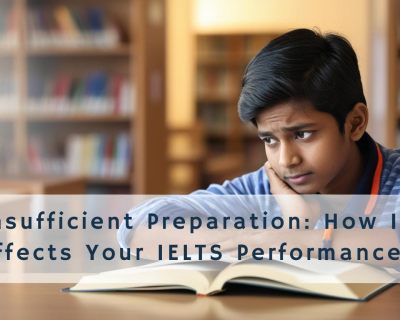The IELTS Reading section is one of the most challenging parts of the exam, but with the right strategies and techniques, you can significantly improve your performance. Whether you’re aiming for a band 7 or higher, mastering the Reading section requires practice, understanding the test format, and knowing how to approach different question types.
In this comprehensive guide, we’ll explore key strategies and tips to help you score high in the IELTS Reading section. Additionally, we’ll look at how Kandor, an AI-powered platform, can further assist you in achieving your desired score by offering personalized guidance and study materials.
Understanding the IELTS Reading Section
The IELTS Reading section consists of 40 questions designed to test a candidate’s ability to read and understand various texts. There are two versions of the IELTS exam: the Academic and the General Training. Although the reading materials differ, the question types are similar across both versions. The texts range from descriptive to argumentative and can cover a wide variety of topics, including science, history, culture, and technology.
The Reading section is divided into three parts, with each part containing a different passage and a series of questions related to it. Here’s a breakdown of what to expect:
- Time Limit: You have 60 minutes to complete the IELTS Reading section. You will be given a total of 40 questions, and you must manage your time wisely to ensure you complete all the questions.
- Question Types: The questions may include multiple-choice, short answer, true/false/not given, matching headings, and more. Being familiar with these question types is key to scoring well.
- Text Length: The reading passages vary in length, but typically range from 1,000 to 1,500 words each. These texts are dense and often contain complex vocabulary, so it’s essential to practice reading efficiently.
Effective Strategies for Scoring High in IELTS Reading
1. Skim and Scan the Texts
One of the most important skills to develop for the IELTS Reading section is the ability to skim and scan the passages efficiently.
- Skimming involves reading the text quickly to get a general idea of the content. Focus on the title, introduction, conclusion, and the first and last sentences of each paragraph. This will give you an overview of the text’s main ideas.
- Scanning is used to locate specific information quickly. If the question asks for a date or a name, scan the text for those keywords or phrases.
This combination of skimming and scanning allows you to answer questions faster without getting bogged down by every word in the passage.
2. Understand the Question Types
The IELTS Reading section contains several types of questions, each requiring a different approach. Understanding these question types will help you know exactly what you need to look for in the text. Here are some common question types:
- Multiple Choice: These questions ask you to choose the correct answer from a list of options. Pay attention to keywords in the question and options to help you locate the correct information in the passage.
- True/False/Not Given: For these questions, you must decide if the information in the statement is true, false, or not mentioned in the text. Be careful not to confuse “not given” with “false”—the information might be absent altogether.
- Matching Headings: These questions ask you to match the headings to different paragraphs. Skim the text for topic sentences and key ideas that match the headings.
- Short Answer: These questions ask for specific information, usually no more than 3 words. Be sure to refer directly to the passage for the answer.
3. Manage Your Time Wisely
Since you only have 60 minutes to complete the Reading section, time management is crucial. Here’s how you can manage your time effectively:
- Allocate Time per Passage: Divide your time equally across the three passages. Spend around 20 minutes on each, which gives you time to skim, scan, and answer questions.
- Don’t Spend Too Much Time on One Question: If you’re stuck on a particular question, move on to the next one. You can always return to the difficult questions if time permits.
- Keep Track of Time: Always be aware of how much time you have left. Use the last few minutes to review your answers and make sure you haven’t missed any questions.
4. Improve Your Vocabulary
A wide-ranging vocabulary is crucial for understanding complex texts and answering questions accurately. To build your vocabulary, read a variety of materials, including newspapers, journals, and academic articles. Make a habit of noting down unfamiliar words, looking up their meanings, and using them in context. This will help you understand difficult passages and answer questions with greater precision.
5. Practice Regularly
The more you practice, the better you will become at answering IELTS Reading questions. Regular practice will help you familiarize yourself with the test format and improve your speed and accuracy. Take as many practice tests as possible to simulate real exam conditions and develop the stamina to complete the entire section in one go.
How Kandor Helps You Score High in IELTS Reading
While these strategies are essential for improving your performance in the IELTS Reading section, having the right tools and resources can make all the difference. This is where Kandor steps in.
Kandor is an AI-powered platform designed to help students, particularly those from developing countries like India, improve their IELTS scores faster and more efficiently. Here’s how Kandor can support your IELTS Reading preparation:
- Personalized Study Plans: Kandor uses AI to create a personalized study plan tailored to your strengths and weaknesses. Based on your performance, it recommends specific exercises, reading materials, and practice tests to help you focus on areas that need improvement.
- Comprehensive IELTS Reading Resources: Kandor provides a wide range of resources, including practice tests, reading passages, and question banks. You can practice different question types, learn new strategies, and test your skills with real IELTS questions.
- Instant Feedback and Progress Tracking: With Kandor, you receive instant feedback on your performance, so you know exactly where you need to improve. The platform tracks your progress and provides detailed insights into your strengths and weaknesses.
- Expert Guidance: Kandor connects you with experienced IELTS tutors who offer tips, tricks, and personalized advice. Their expert guidance can help you understand complex reading strategies and provide targeted assistance to maximize your score.
- Flexible Learning: Kandor’s platform allows you to study at your own pace, fitting your preparation around your schedule. Whether you’re a full-time student or a working professional, you can access Kandor’s resources anytime, anywhere.
Conclusion
Scoring high in the IELTS Reading section is a combination of strategy, practice, and understanding the test format. By mastering techniques like skimming, scanning, and time management, and by familiarizing yourself with different question types, you can boost your reading score significantly.
Platforms like Kandor offer invaluable support to students preparing for IELTS. With personalized study plans, comprehensive resources, expert guidance, and progress tracking, Kandor ensures that you stay on track to achieve your dream score. Whether you’re looking to improve your vocabulary or practice reading under timed conditions, Kandor is here to help you succeed in the IELTS Reading section and beyond.




















